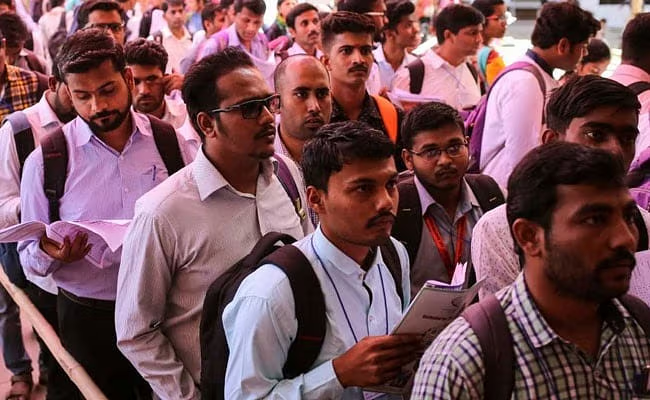
India News

There is a stark contrast between what the ruling governments claim and the ground reality when it comes to job creation. Politicians often boast about generating thousands or even millions of jobs under their administration. However, the actual situation in the country tells a different story. Today, even for peon positions, millions are competing — and notably, many of them are highly educated individuals.
This isn’t a new phenomenon in India. It’s been happening for decades. Despite the rapid expansion of the private sector and the emergence of numerous companies, and despite governments claiming to attract top multinational corporations and industries, the unemployment crisis remains unresolved. While the growth of the private sector has certainly led to job creation, the demand for government jobs continues to be much higher. Government jobs offer job security, financial benefits, and, most importantly, long-term stability — even if the job is a minor one.
That is why millions are applying for even the smallest government roles. For example, in Rajasthan, around 25 lakh (2.5 million) unemployed individuals applied for just 53,000 peon posts. What’s surprising is the level of qualification among these applicants — many hold PhDs, MBAs, law degrees, are preparing for civil services exams, or possess various other academic achievements.
The primary reasons are job security and financial stability, both of which are often lacking in private sector jobs. In Rajasthan alone, forest guard posts are also seeing massive competition — 22 lakh applicants for just 2,899 vacancies. The minimum qualification for both peon and forest guard positions is just 10th grade. While these might seem like minor jobs, they come with written exams. Even the most qualified individuals must go through a selection test to secure the position.
Though many of these highly educated candidates may not stay in such jobs permanently, they see them as a temporary but stable option — a safer bet until they land a better opportunity.
Advertisment